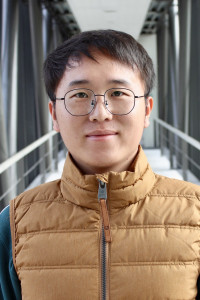PhD-student

Research:
Beta cell destruction in Type 1 diabetes (T1D) results from the combined effect of inflammation and recurrent autoimmunity. In the past years, the view on the role of the beta cells in the development of T1D has evolved, from passive victims of the immune system, more and more evidences suggest that the beta cells are actively implicated in their destruction. Prolonged exposure to metabolic or inflammatory stress promotes additional coping mechanisms including initiation of recycling programs and selective secretion of proteins and small RNA in microvesicles. A recent analysis of islet derived extracellular vesicles has shown that these secreted particles are biologically active, carrying islet specific proteins and miRNA involved in communication with the neighbouring endothelial cells. My research aims at scrutinizing the intercellular communication together with determining the impact of the beta cell specific vesicles on intra islet resident innate immune cells, and also further exploring how activation of the innate response participate to the activation of the adaptive immune response mounted against the beta cells.
Curriculum vitae:
I studied Veterinary Medicine at Southwest University. After a bachelor in Agronomy, I obtained my master degree at Jilin University in June 2022. During my master, I have been involved in several research projects on the mechanisms of communication between pattern recognition receptors of mouse macrophages and parasites as well as the latter’s extracellular vesicles, and the molecular mechanisms of pyroptosis in macrophages elicited by parasites. In October 2022, I started my PhD program supported by the CSC scholarship (awarded in May 2022) under the supervision of Dr. Arnaud Zaldumbide at the department of Cell and Chemical biology of the Leiden University Medical Center.



Looking for information on one of our topics, a new place to conduct your research or experienced research to join forces with? Feel free to contact us.!